Worlds: Garfoot saves Australia from embarrassment in women's road race
'Maybe this medal is a good thing and now we'll be taken more seriously'
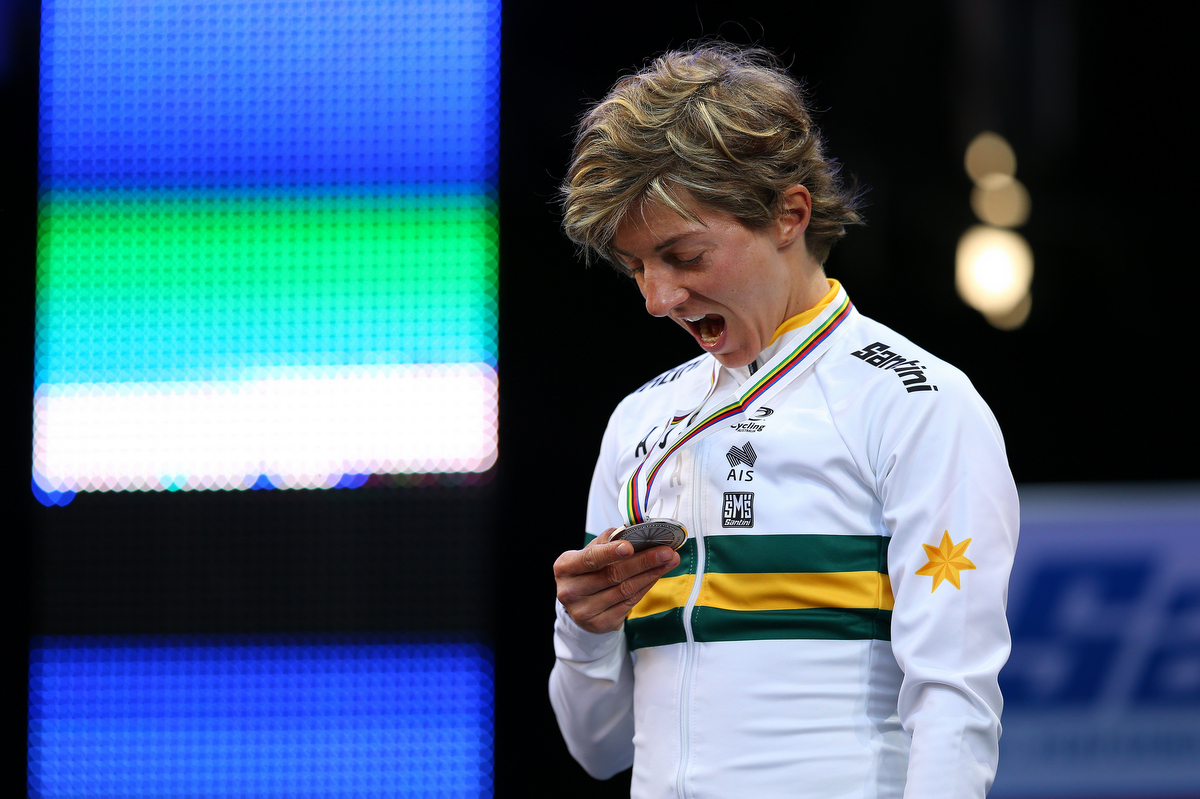
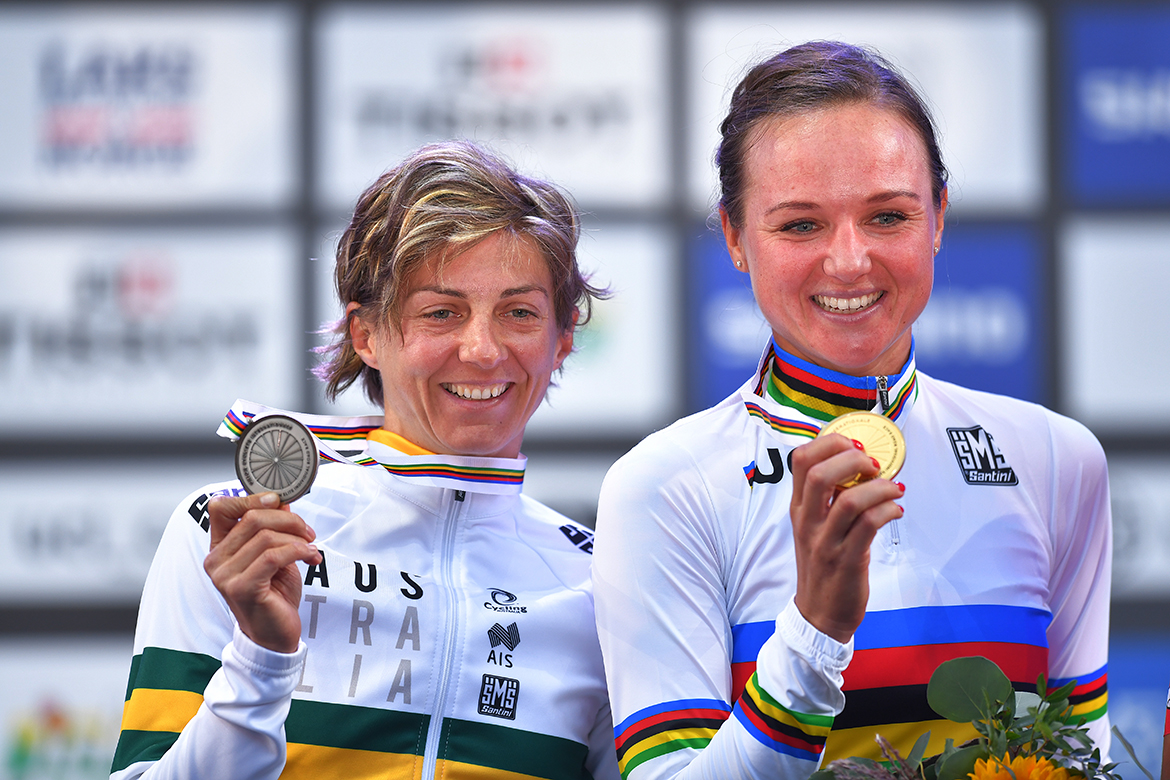
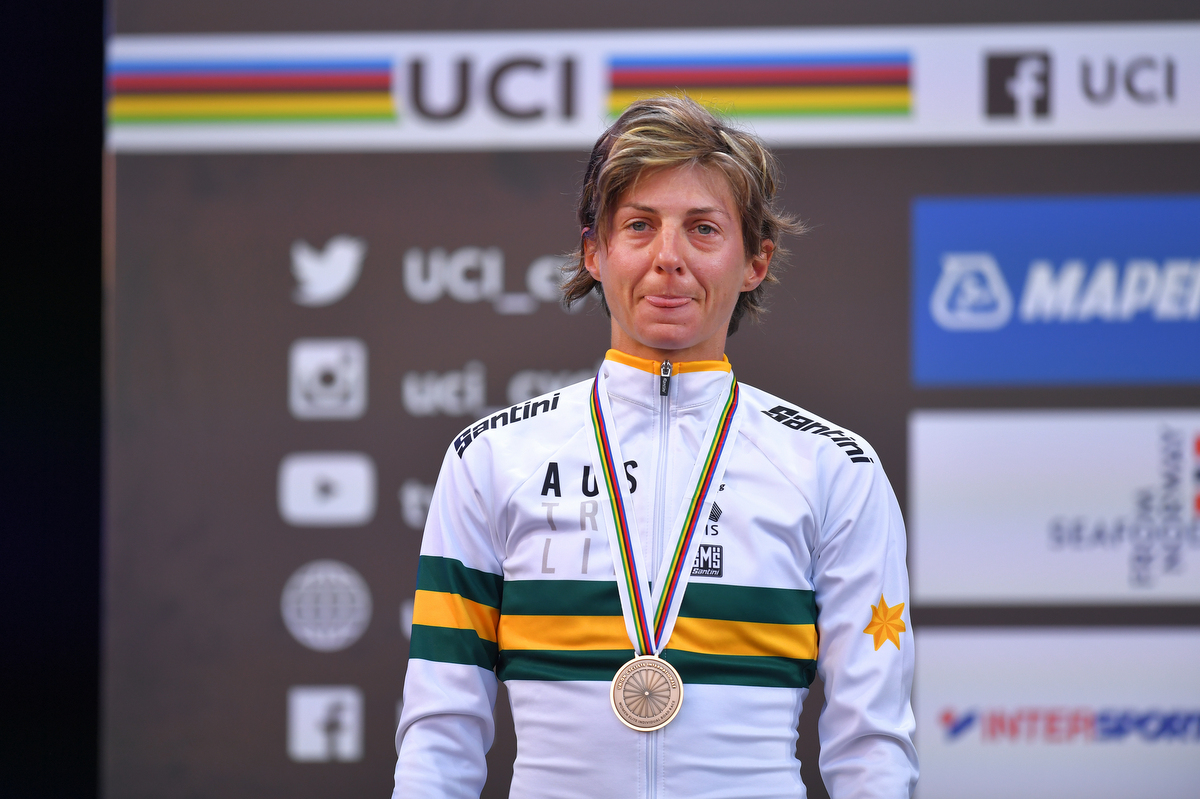
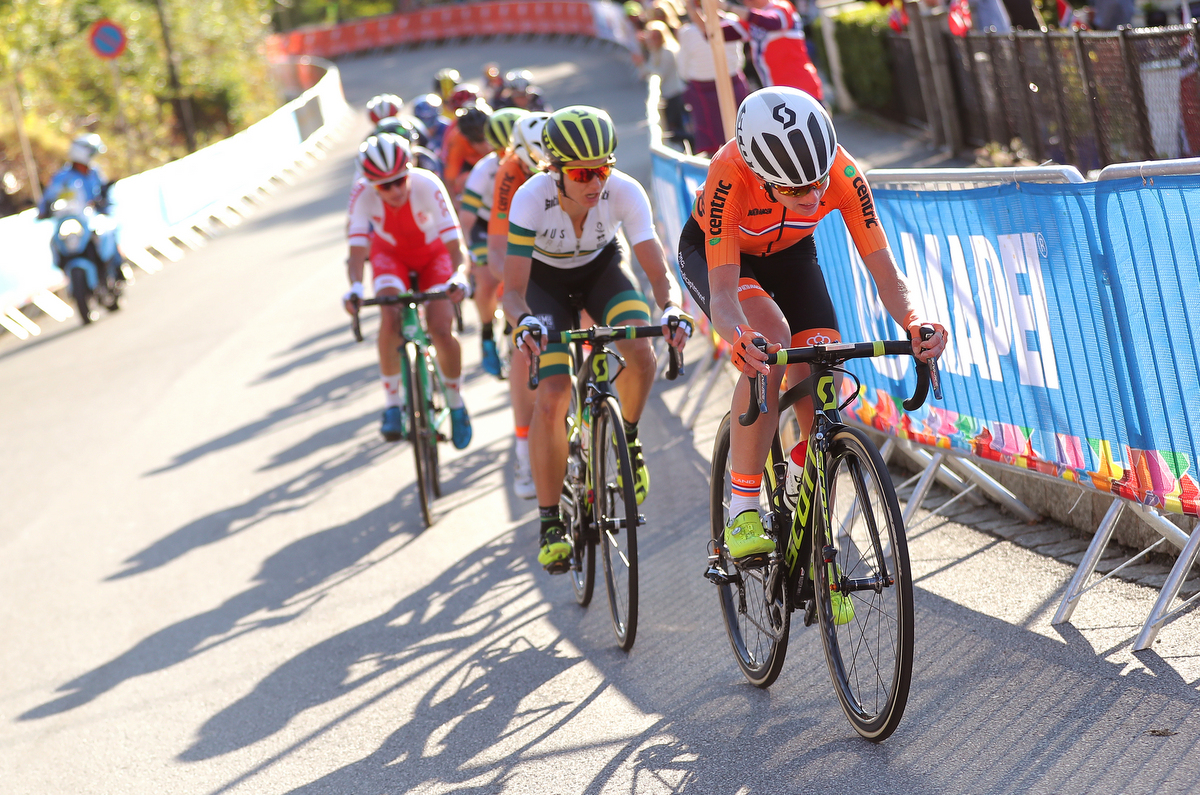
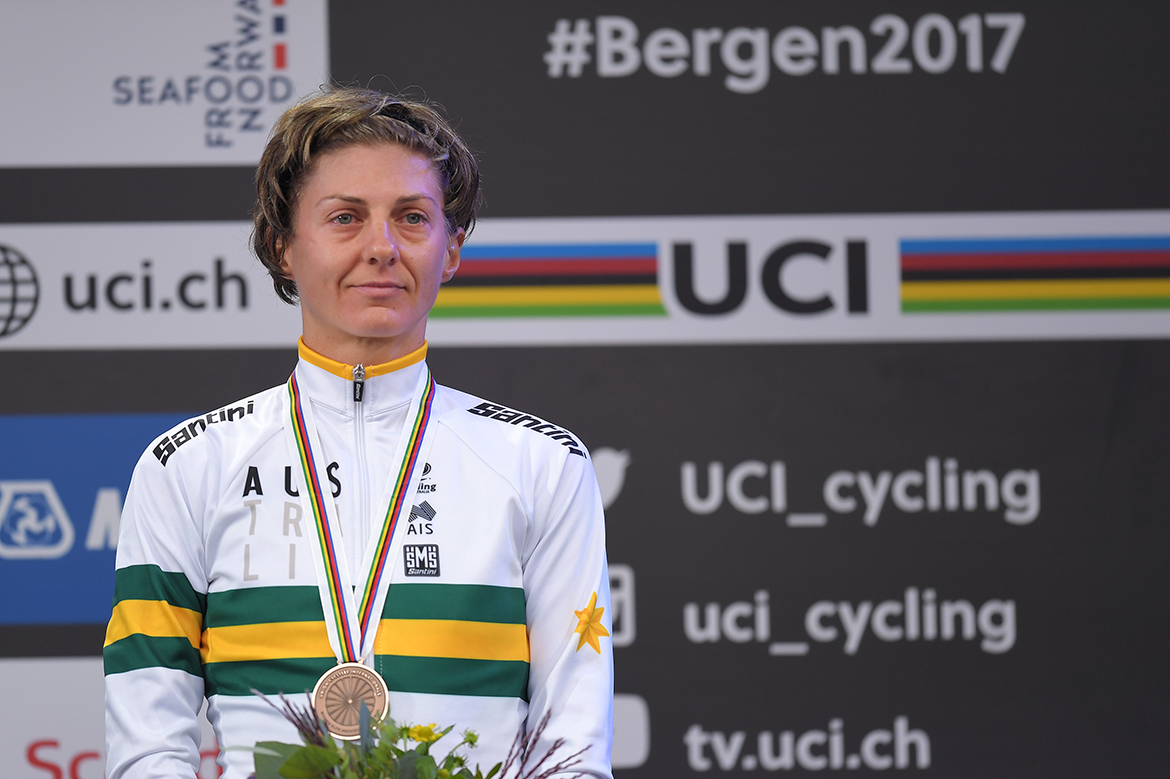
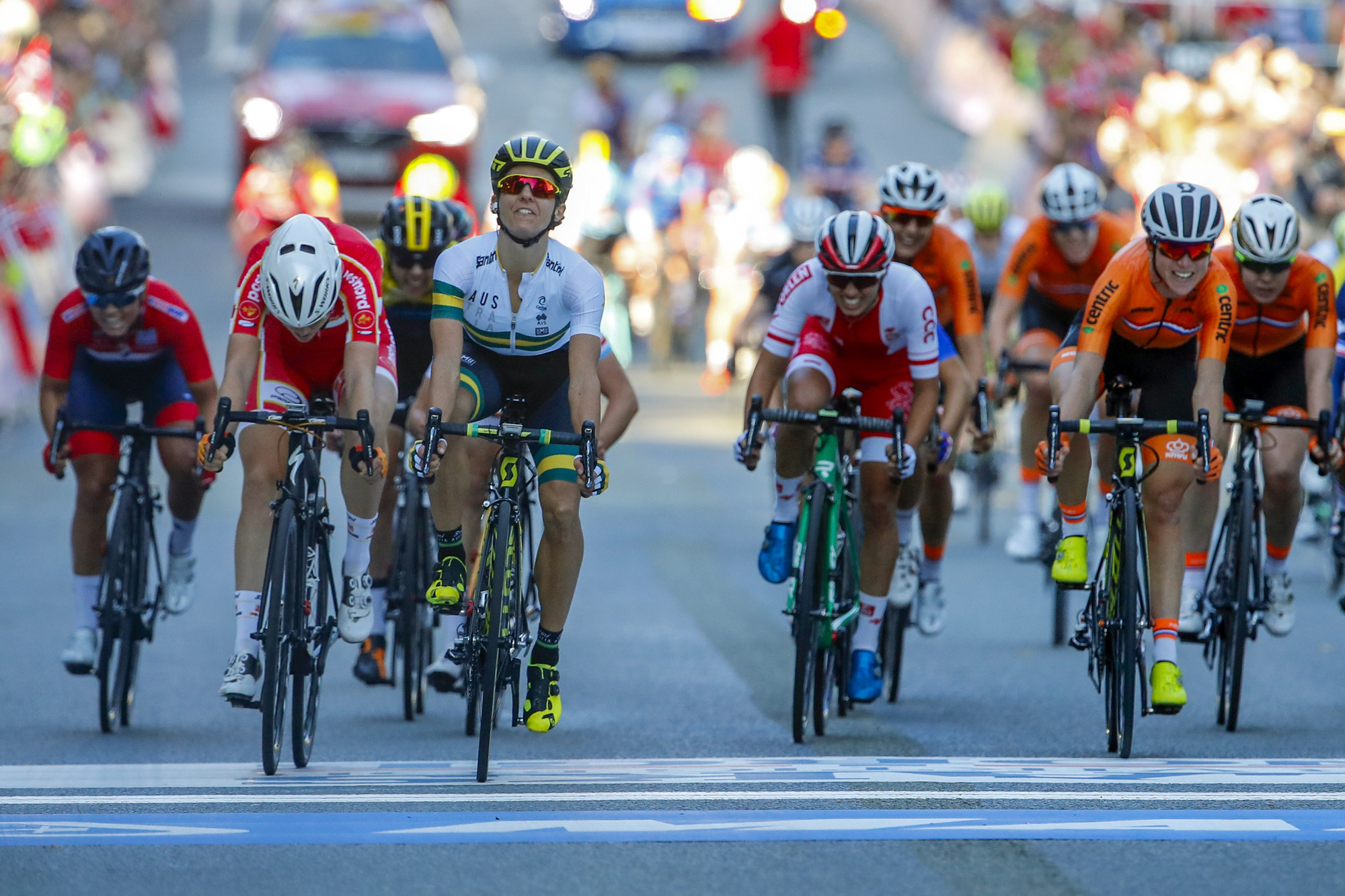
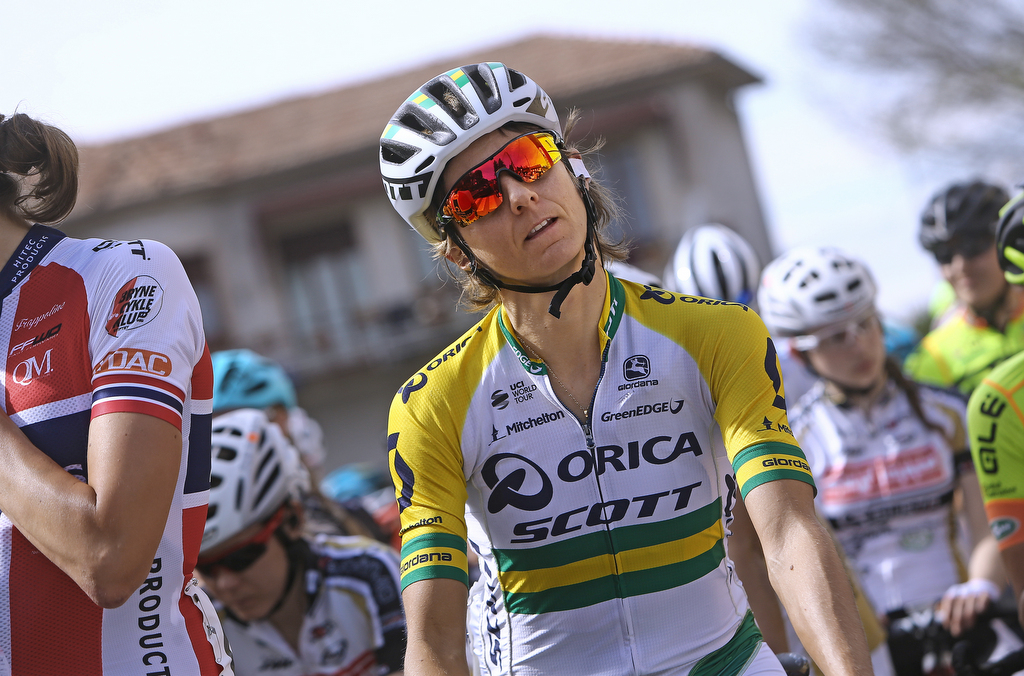
Katrin Garfoot gave the Australian team a second medal in the UCI Road World Championships in Bergen, saving the women in green and gold from any embarrassment and fallout about the squad selection policy under new performance director Simon Jones.
The Australian team has often been dominant in the women's road race but has never won the world title. Jones initially opted for a single-strategy, five-rider squad as he tries to instil a new philosophy in Australia cycling. But he was forced to add Chloe Hosking and Rachel Neylan after they won an appeal. The seven riders raced on equal footing, marking specific rivals, rather than respecting a specific hierarchy.
Sarah Roy and Shara Gillow finished in the main group in the same time as Garfoot, after Australia tried to place riders in every attack. Neylan was 53rd at 4:01, with Hosking 58th at 4:43.
It was team veteran Garfoot who brought home the medal, adding silver to her bronze in the time trial. She rightly considered it a success rather than defeat.
"I think I 'won' a silver medal. It was always going to tough against three Dutchies; in a race of seven, the odds were stacked against me," she said with pride.
"I've won quite a few medals. They all mean a lot to me in a different kind of way, each has an individual story attached to them. This was a lottery."
In truth, Garfoot's medal was a reward for her ability and her readiness to bet against the strength of the Dutch team and save her strength for the sprint for the medals. The attack that decided the race was caught in sight of the line but Garfoot had the speed to stay out front and get her reward.
Get The Leadout Newsletter
The latest race content, interviews, features, reviews and expert buying guides, direct to your inbox!
"When Chantal Blaak went I hesitated thinking that maybe Annemiek van Vleuten or Anna van Der Breggen wanted it more and so they'd chase. I just knew that if I'd chased, they would have attacked me and so I rest my legs for the sprint or a late attack," she explained.
"In the sprint, I didn't even realise we'd been caught. I was just focused on my race."
No protected leader
Garfoot revealed that Australia did not have a protected team leader, with the seven riders marking different rivals and trying to be active in the race. This explained why Neylan, Gracie Elvie, Amanda Spratt went in moves and why Sarah Roy tried to chase Blaak's first attack with Hannah Barnes (Great Britain) and Audrey Cordon (France).
"We wanted to wait until deep into the race when the Dutchies would attack. We wanted more numbers up there but it was just myself," she said.
Garfoot refused to take sides in the argument about selection. She now hopes that her two medals can help Australian women be taken more seriously at home and globally.
"I was actually preparing for the time trial, I didn't prepare for the road race. I shut myself up; I was at altitude and focused on my own training. I was aware of what was going on but I didn't mix in," she said.
"I didn't feel I had a position to mix in either. But I did message the girls and told them I thought it's good what that they were doing. But I tried to stay out of it.
"I'm not sure how it will all unfold in the future. Maybe this medal is a good thing and now we'll be taken more seriously. I think that women's cycling is being taken more seriously. Let's just hope that's a good step up for Australia cycling. I think that's happening in the world and so will perhaps Australian cycling will follow suit."

Stephen is one of the most experienced member of the Cyclingnews team, having reported on professional cycling since 1994. He has been Head of News at Cyclingnews since 2022, before which he held the position of European editor since 2012 and previously worked for Reuters, Shift Active Media, and CyclingWeekly, among other publications.